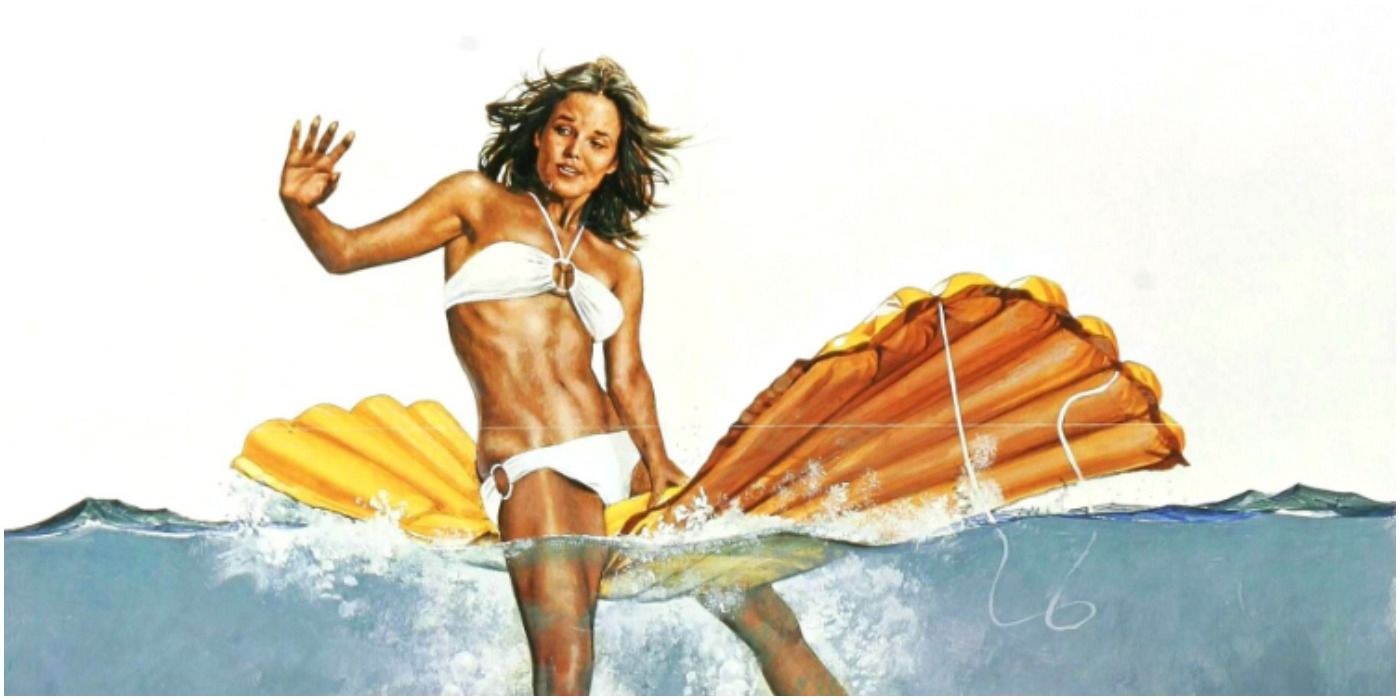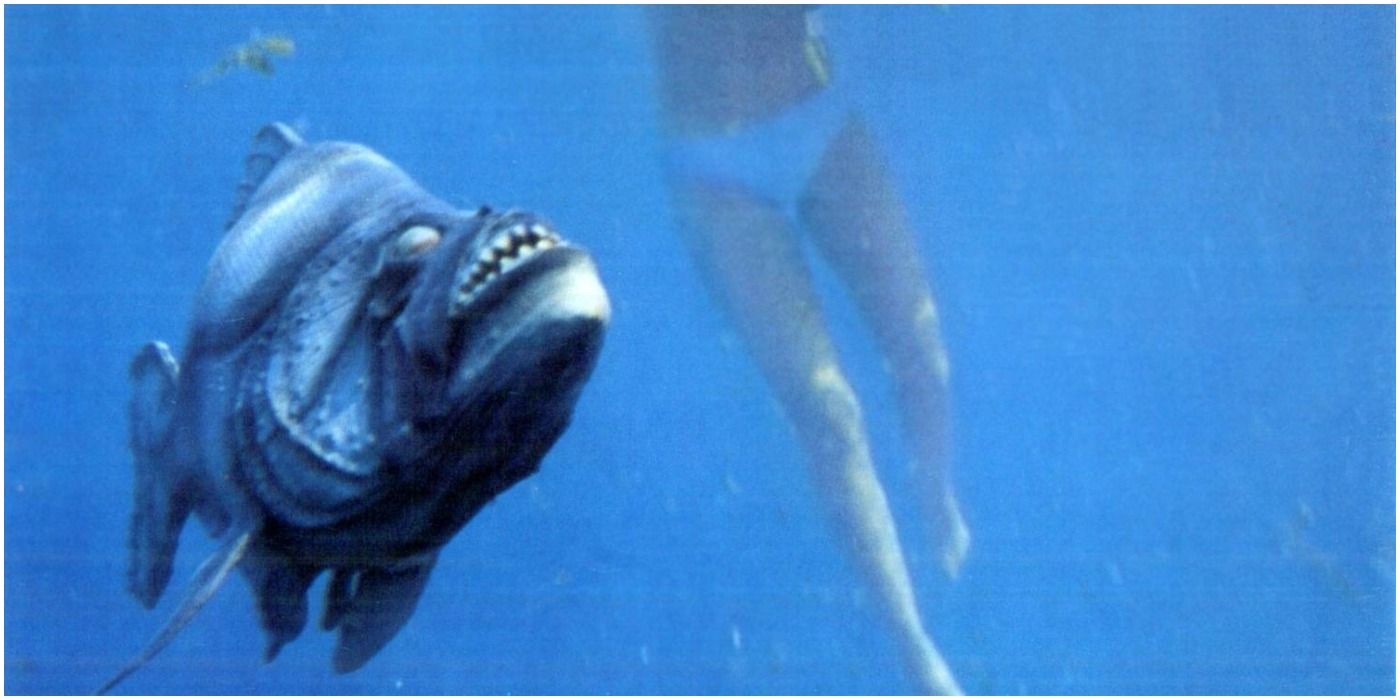Piranha (1978), the Roger Corman Jaws rip-off, helped launch director Joe Dante’s career as a Hollywood player. The low budget film was almost confronted with litigation before a powerful filmmaker stepped in to intervene.
Corman’s New World Pictures was founded in 1970 as an attempt to emulate the success of American International Pictures (AIP). Corman had produced and/or directed several successful films for AIP in the 50’s and 60’s. The studio produced primarily low budget titles that were referred to as “B” films as they usually appeared as the second feature on a double bill. An “A” film was generally the main attraction back then—a big studio production with recognizable stars—while the co-feature, or “B” title on the program, was a more modest entertainment. AIP was very successful making films for this market, and Corman used the studio as a template for his own company.
One of the keys to the success of New World Pictures was exploiting a popular theme or entertainment zeitgeist. With no money for marquee names, the draw of a low budget film was purely the content. Exciting or taboo themes were exploited to their fullest; sex, violence, and action were necessary to stand out from the competition. Films that revolved around sexually promiscuous nurses or women in prison were early hits for the company. Corman was also very savvy about riding the coattails of successful studio films that could be replicated in an inexpensive way. Selling the public on a known commodity was a fast and cheap way to sell tickets. In the late 70’s and early 80’s, New World would aggressively rip-off the plots of studio hits.
How A Jaws Rip-Off Launched Joe Dante’s Film Career
Corman, who is still active today, was very interested in emulating the success of Jaws, hiring screenwriter John Sayles to clean up a previous draft. Sayles injected some humor along with the obvious elements that a drive-in audience would find attractive. The thinking was that a film about flesh-hungry piranhas was enough to differentiate itself with the killer shark movie. Joe Dante, who had started at New World pictures editing trailers, had one co-directing credit to his name before he was hired to direct Piranha. His first film, the exploitation satire Hollywood Boulevard (1976), was co-directed by Allan Arkush. Both started at New World Pictures in the editing department, and both shared a sly sense of humor that they infused in their work.
Dante took a satiric approach to Piranha, using cues from Sayles’ witty draft to create a self-reflexive work that gave proper acknowledgement to Jaws. Corman knew that Universal would be releasing Jaws 2 in June of 1978, so he decided to release Piranha in August of that year to take advantage of the public’s interest in aquatic horror. When Universal caught wind of the advertising campaign, which was a clever variation on the original Jaws one-sheet, they considered taking New World Pictures to court. However, director Steven Spielberg, who had just seen a preview of the film, convinced them not to sue. Spielberg, whose clout was huge at the studio after the back-to-back success of both Jaws and Close Encounters of the Third Kind, was a huge fan of Dante’s film.
Piranha was released in the late summer and proved a huge success for New World Pictures grossing around $16 million domestically. In addition to earning the respect of Spielberg, Dante was also given the opportunity to direct a bigger-budgeted follow-up: Avco Embassy’s The Howling (1981). Directing from another clever Sayles’s script, The Howling also successfully combined humor and horror into a crowd-pleasing hit. A tale of werewolves loosely based on Gary Brandner’s best-selling novel, the special effects heavy production convinced Spielberg to hire Dante for the big budget studio films Twilight Zone: The Movie (1983) and Gremlins (1984). Piranha would eventually inspire a sequel Piranha 2: The Spawning (1982), and two remakes of varying degrees of quality.


